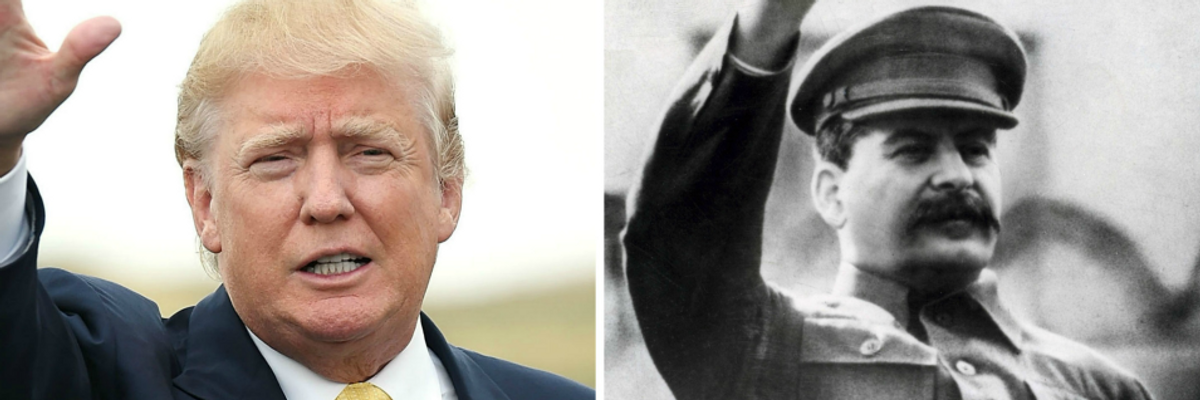American scientists are facing censorship on par with that imposed in the USSR under Josef Stalin, Australia's chief scientist Alan Finkel said during a scientific roundtable in Canberra, Australia, on Monday.
"Science is literally under attack," Finkel warned, describing the Trump administration's crackdown on Environmental Protection Agency (EPA) data, which requires political appointees to review scientific research before it is published. Congressional Republicans have also set their sights on gutting the regulatory agency.
"It defies logic. It certainly does longterm harm," Finkel said, and compared the administration's policy to the USSR under Stalin:
It's reminiscent of the censorship exerted by political officers in the old Soviet Union. Every military commander there had a political officer second-guessing his decisions.
Soviet agricultural science was held back for decades because of the ideology of Trofim Lysenko, who was a proponent of Lamarckism. Stalin loved Lysenko's conflation of science and Soviet philosophy, and used his limitless power to ensure that Lysenko's unscientific ideas prevailed.
Lysenko believed that successive generations of crops could be improved by exposing them to the right environment, and so too could successive generations of Soviet citizens be improved by exposing them to the right ideology.
So while Western scientists embraced evolution and genetics, Russian scientists who thought the same were sent to the gulag. Western crops flourished. Russian crops failed.
"Today, the catch-cry of scientists must be frank and fearless advice," Finkel said, "no matter the opinion of political commissars stationed at the U.S. EPA."
Finkel went on to argue that sound science must inform government policy, the Sydney Morning Herald reported, and said he was proud to be chief scientist in a country where no politician had ever told him what he could and couldn't say.
Trump's actions in his first two weeks in office--not to mention his usual rhetoric--have also provoked comparisons with other infamous dictators, such as Adolf Hitler and Kim Jung-un.

